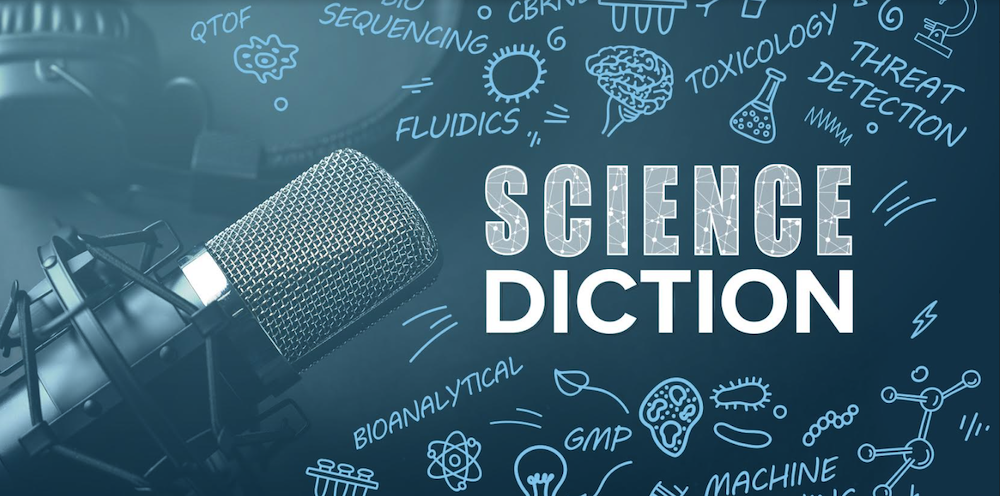Transcript – Biologics: Providing a Critically Important Targeted Treatment Approach
Dr. Amy Manning-Boğ
There is a class of therapeutics and preventatives collectively known as biologics. These include vaccines, gene therapies, immune modulators, cell therapies, and monoclonal antibodies. While their development pathway is not always straightforward, they are proving critical to human health and as such are a growing field. Dr. Rachel Ginther my colleague, is a program director who oversees the analysis, characterization, and method development for drug substances and drug products. She has supported pharmaceutical and biotech companies in all phases of development, from concept to commercial. Dr. Ginther is an expert in analytical method development and validation for HPLC and mass spec.
Today on the show, Biologics. What they are, how they differ from other pharmaceuticals and why they may be critically important in treating diseases that presently have no other treatments available. I’m Amy Manning-Boğ and this is Science Diction from MRIGlobal.
Dr. Rachel Ginther
When I was 8 to 10 months old, I had a bacterial form of meningitis. And as a result of that, I was left with a seizure disorder, epilepsy. Throughout my life, I’ve taken a variety of antiseizure medications.
None of them are really that great. They’re small molecule. They can address the symptoms and prevent seizures, but they don’t do anything to address the underlying disease.
It’s just a huge impact in your life growing up with something like that and it it tends to color every experience that you’re having. When I learned to drive, that was a serious concern to make sure that my medications were actively preventing seizures.
I was a varsity swimmer all the way up through high school, having epilepsy meant that I could never practice alone. And then when I had my children, I knew that it was a risk to become pregnant and have those pregnancy hormones then impact the levels of anti-seizure medication in in my blood.
It would be great if instead of just treating the seizures, you could instead treat the underlying disease and that would make all the difference in people’s lives.
Dr. Amy Manning-Boğ
Biologics are of course a topic near and dear to my heart, given current and past research interests. Rachel, can you tell us what biologics are?
Dr. Rachel Ginther
Biologics are therapeutic substances derived from living organisms or their products. These can include vaccines, monoclonal antibodies, cell and gene therapies, and they can be used to treat a host of different medical conditions. Monoclonal antibodies are proteins that are grown in a lab similar to what your own immune system would make when it fights disease. These will target very specific molecules or cells that basically supplements your own immune system in fighting a disease. A gene therapy is a medical approach that involves introducing, modifying or replacing genes within a person’s cells. It can treat or prevent genetic disorders diseases or restore specific biological functions. Cell therapy is a medical treatment approach that involves transplantation infusion or manipulation of living cells to replace, repair or enhance cellular functions to treat diseases or injuries.
Dr. Amy Manning-Boğ
You told me about another one the other day with Ozempic falling into a different category.
Dr. Rachel Ginther
Yes. Yeah, I did that. So there’s Ozempic and a variety of different peptides that are all in this same class called glucagon like peptides and it’s been all over the news, how there’s been shortages of Ozempic because it’s been truly revolutionary for weight loss. But it was intended for people with to manage their type two diabetes. And then you have vaccines.
Dr. Amy Manning-Boğ
Another favorite here.
Dr. Rachel Ginther
Yeah. Vaccine therapy is a medical intervention that uses pathogens or generates a small component of a pathogen in order to stimulate the immune system. And this creates immunity and protection against specific diseases.
Dr. Amy Manning-Boğ
We had discussed this on a previous podcast with Dr. Christopher Weiss.
Dr. Rachel Ginther
So live attenuated vaccines. I think by now everyone has heard of mRNA vaccines, which you also discussed on the podcast. And then there’s also inactivated or killed vaccines, as well as recombinant vaccines.
Dr. Amy Manning-Boğ
Recombinant vaccines. Tell me more.
Dr. Rachel Ginther
A really recent success story for recombinant vaccines is that of the new vaccine that was just approved by FDA for RSV.
Dr. Amy Manning-Boğ
I had seen that, but I don’t know the background.
Dr. Rachel Ginther
RSV is a respiratory virus. And if you’re a parent like me, you know it well. When RSV binds to your cell and inserts its genetic material to get your cell to reproduce it, the F protein binds the cell and it actually changes shape. So before it binds the cell, it’s called prefusion. And after it binds the cells called post fusion. So once the F protein in the virus binds, your cell is already infected. What was happening with the inactivated vaccine is that the body was making antibodies for the post fusion version of the virus.
Dr. Amy Manning-Boğ
Got it. How did that lead to the current vaccine?
Dr. Rachel Ginther
In 2010, they were finally able to identify the structure of the post fusion and prefusion proteins using a technique called X-ray crystallography, so they could actually see the change in shape of that protein. And once they did that, they were then able to basically reverse engineer a protein that would match the prefusion protein when it’s really important for the body to attack the virus before it binds the cells.
Dr. Amy Manning-Boğ
So they did recombinantly express the prefusion form of F?
Dr. Rachel Ginther
Exactly.
Dr. Amy Manning-Boğ
Nice. Very nice.
The past few episodes we’ve talked much about vaccine research. Dr. Ginther is an analytical chemist who has worked extensively on the development phase for a variety of therapeutics.
Dr. Rachel Ginther
Once the vaccine gets through pre-clinical trials in model systems, all the ingredients are tested carefully and evaluated for safety, and that’s where analytics becomes so important.
Dr. Amy Manning-Boğ
So you’re an analytical chemist. What sort of analytical experiments are performed during vaccine development before testing in non-clinical and clinical trials?
Dr. Rachel Ginther
Are you ready for a laundry list?
Dr. Amy Manning-Boğ
Yes.
Dr. Rachel Ginther
First, identity and purity testing. We often use a tool called mass spectrometry. MS. It’s used to confirm the identity and purity of vaccine antigens or proteins. This is one of my favorite techniques used in the lab. Second, we have quantitative analysis. We often use high performance liquid chromatography, which you’ll often hear referred to as HPLC or liquid chromatography coupled to mass spectrometry or LCMS.
And these techniques can be used to quantify or measure the levels of specific components, such as the antigens or the adjuvants in vaccine formulation. Third, stability testing is really important. Vaccines don’t get used immediately after they’re manufactured. So we need to determine the vaccine’s stability under various temperature and storage conditions to ensure it remains effective over time. Fourth, sterility testing. Sterility tests ensure that the vaccines are free from microbial contamination. Various microbiological culture methods are used in this process. Along this line, we also have to test for endotoxin, which can be produced by microbial contamination and for the presence of trace metals, which can also be contaminants. What number am I on now?
Dr. Amy Manning-Boğ
I think you’ve listed about seven different assays.
Dr. Rachel Ginther
There’s actually many more. It’s really comprehensive. We also have to take into consideration things like chemical compatibility and ensuring that the container and its closure materials don’t leach into the vaccine or the vaccine doesn’t adhere to the walls of the vial.
Dr. Amy Manning-Boğ
Is there testing for activity in the manufactured lots?
Dr. Rachel Ginther
Yes. This is done to ensure that it’s biologically active at the right level. Typically, this can be done by a cell based assay or an in vivo assay. But yes, it is really important to confirm the vaccine’s effectiveness in different lots that are produced.
Dr. Amy Manning-Boğ
Wow. That’s a substantial amount of work involved in manufacturing.
Dr. Rachel Ginther
Yes. And there’s regulatory oversight at each step of the way, including storage and distribution to health care facilities. There’s much work in manufacturing and in the entire lifecycle, the entire process of vaccine development can take years and involves collaboration between scientists, government agencies, pharmaceutical companies and health care providers to ensure that vaccines are safe and effective tools for preventing infectious disease.
With today’s current landscape for treatment options for a variety of diseases, there aren’t enough treatment options available. And not only that, but the treatments that are available are not targeted enough. Biologics provide that targeted treatment approach.



